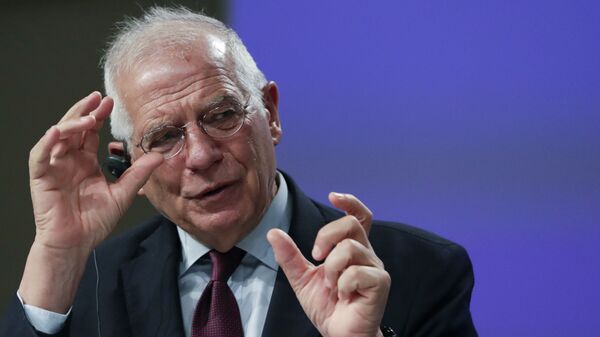"Our economy will be in a strong shock after the summer when people come back from holidays and find out that many firms have disappeared, and many people cannot sustain their revenues. It is going to be a big proof for the European solidarity," the EU foreign policy chief said.
Borrell warned that some member states would face a stark economic crisis that could see firms go bankrupt and workers lose their jobs. At this time, investment will be crucial in propping up the economy of EU member states and the bloc itself, the foreign policy chief said.
"In the next months, the most important challenge will be the economic one. For sure, the economic problems will have social consequences and maybe political," Borrell commented, adding that the European Central Bank was working diligently to provide funding.
Following protracted and heated negotiations in July, EU leaders agreed on a recovery package worth 750 billion euros ($895 billion) in loans and grants to help member states recover after the COVID-19 pandemic. However, Borrell stated that the implementation of the emergency fund will have its difficulties.
"The implementation of the economic package will be decisive, and it is not going to be so easy because to spend 750 billion with conditionalities … will put a proof on the administrative capacities of the member states, let apart the problem of political ratification," Borrell said, adding that EU member states must be "ready to face a very unpleasant economic situation."
The EU foreign policy chief noted that the bloc's recovery plan still needs to be ratified by the national parliaments of the member states. Borrell said that it would be a "big failure" should member states fail to ratify the proposal.
According to the agreement reached by EU leaders in July, Italy will receive 28 percent of the European Union’s COVID-19 recovery fund, the largest of any nation, comprising 81 billion euros in grants and 127 billion euros in repayable loans.



